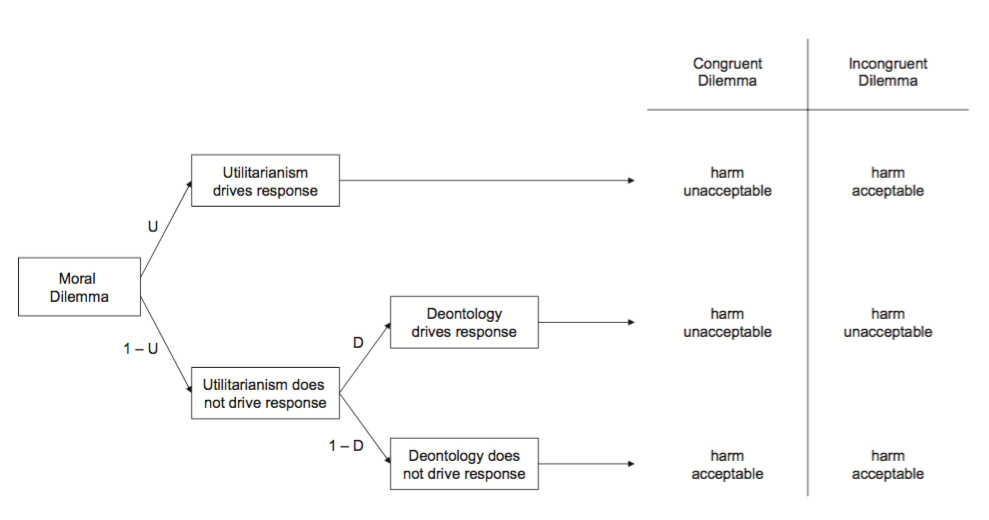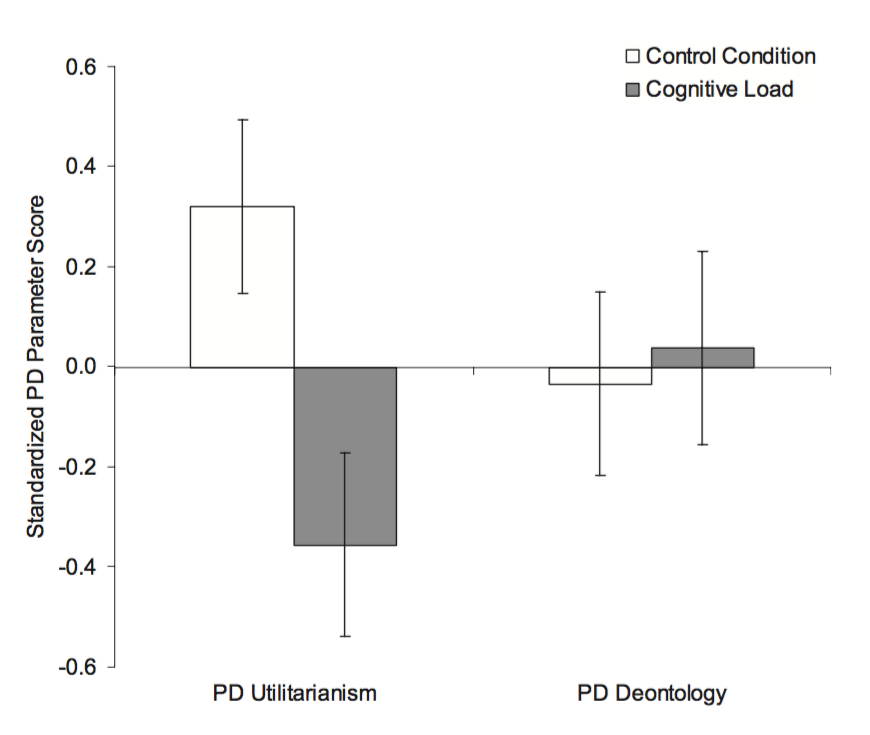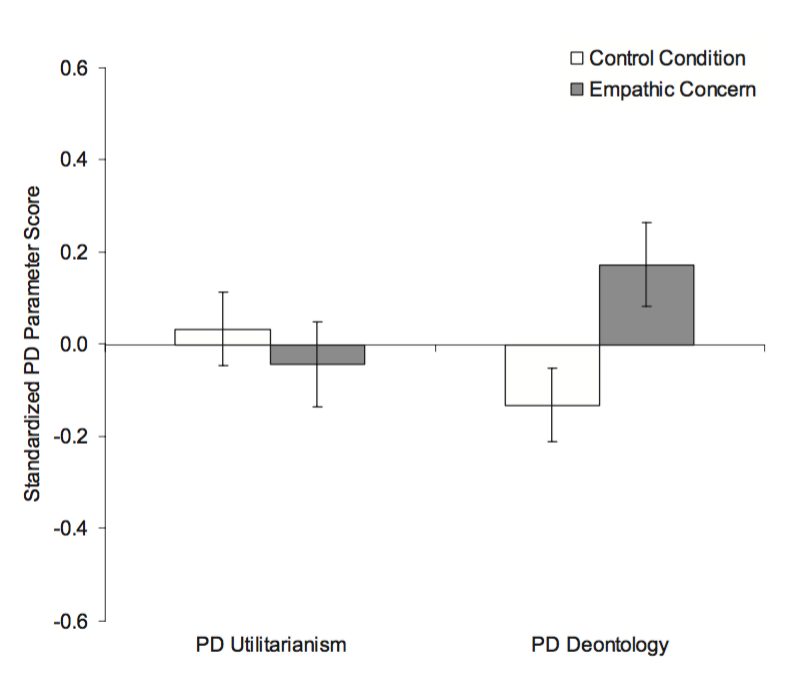Click here and press the right key for the next slide.
(This may not work on mobile or ipad. You can try using chrome or firefox, but even that may fail. Sorry.)
(If the slides don’t work, you can still use any direct links to recordings.)
also ...
Press the left key to go backwards (or swipe right)
Press n to toggle whether notes are shown (or add '?notes' to the url before the #)
Press m or double tap to slide thumbnails (menu)
Press ? at any time to show the keyboard shortcuts
Dual Process Theories: the Process Dissociation Approach
Greene’s dual process theory
Dual Process Theory of Ethical Abilities (core part)
Two (or more) ethical processes are distinct:
the conditions which influence whether they occur,
and which outputs they generate,
do not completely overlap.
One process is faster than another.
The outputs of one process are more consequentialist than those of another.


Conway & Gawronsky 2013, figure 1
Dual Process Theory of Ethical Abilities (core part)
Two (or more) ethical processes are distinct:
the conditions which influence whether they occur,
and which outputs they generate,
do not completely overlap.
One process is faster than another.
The outputs of one process are more consequentialist than those of another.
Prediction 1: higher cognitive load will reduce the dominance of the more consequentialist process.

Conway & Gawronsky 2013, figure 3
Dual Process Theory of Ethical Abilities (core part)
Two (or more) ethical processes are distinct:
the conditions which influence whether they occur,
and which outputs they generate,
do not completely overlap.
One process is faster than another.
The outputs of one process are more consequentialist than those of another.
Prediction 1: higher cognitive load will reduce the dominance of the more consequentialist process.
Additional assumption: The faster process is an affective process.
Prediction 2: higher empathy will increase the dominance of the less consequentialist process.

Conway & Gawronsky 2013, figure 3
